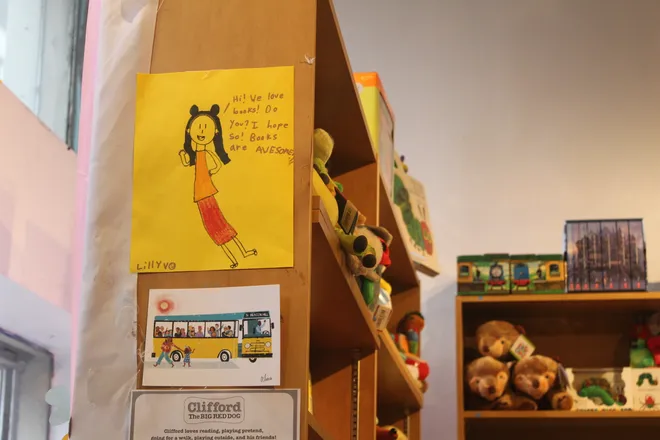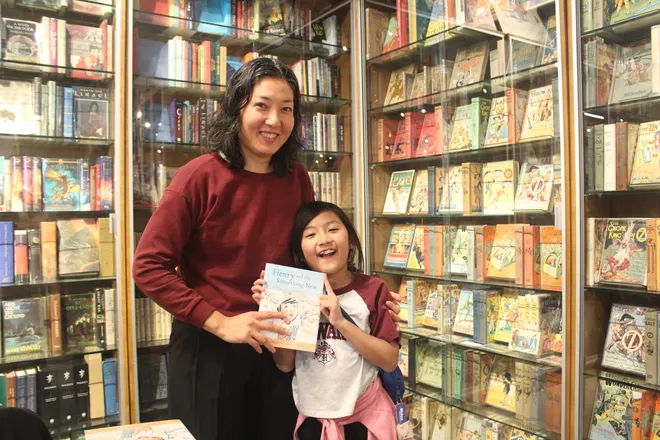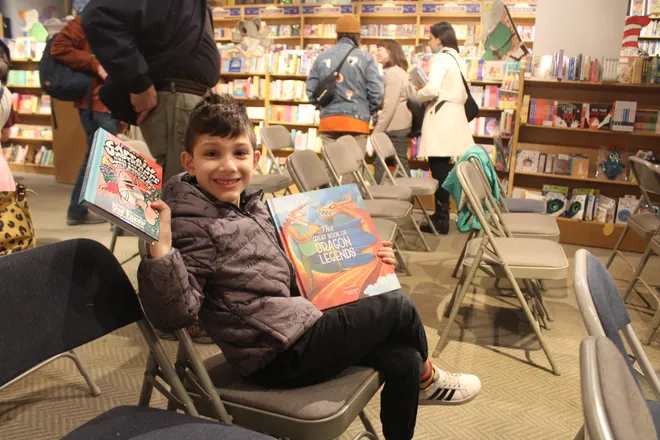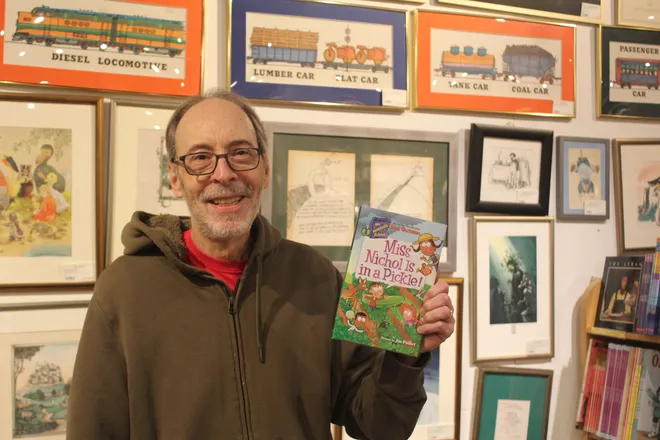What is the 'best' children's book? Kids, parents and authors on why some rise to the top
What was your favorite book as a kid?
That question makes for a surprisingly effective icebreaker. You can tell a lot about someone from the books they read as a child. Case in point: I’m a journalist, a talker, a storyteller. Many of my childhood favorites had equally yappy and imaginative characters – “Junie B. Jones” by Barbara Park, “Olivia” by Ian Falconer, “Lilly’s Purple Plastic Purse” by Kevin Henkes.
The stories we read at bedtime seldom stay there. Here’s what parents, booksellers, authors and – most importantly – kids told me about what makes the best children’s book.

What makes the best children’s book?
Reading is subjective, of course. But in the quest for the “best” children’s books, parents should look out for a story that’s as entertaining to them as it is to their kids.
Check out: USA TODAY's weekly Best-selling Booklist
“The secret to a really successful picture book is a picture book that both the parent and child can each enjoy on their own level,” says Peter Glassman, the owner of children’s bookstore “Books of Wonder” in New York City.
At a minimum, you have to make sure it’s a book you’re willing to read over and over.
“Sometimes I view children’s book authors as parenting partners where they’re like ‘This book is for the kid, but I’m going to make sure there’s a joke in here for you,'" said Tocarra Mallard, a TV writer from New York and a mother of two who makes TikToks about children’s books.
A good children’s book may teach kids about colors or numbers, but the best children's books can give them a voice to process and experience emotions.
In “The Pout-Pout Fish” by Deborah Diesen, a favorite in Mallard’s house, an act of acceptance helps turn a frown upside down. It has a silly, catchy rhyme that makes her 2-year-old laugh, but also a lesson for her 5-year-old that it's OK to feel blue sometimes. Kids aren't just kids – they're small people who live in a world that can foster anxiety, depression and other complicated feelings," Mallard says.
“For us to pretend that children (exist in) light and love and goodness at all times is denying them their humanity,” she says.
In their words: Kids tell us what makes a good book
Sometimes, finding the “best” book for your kid is just about knowing your kid. Some children want a picture-heavy book while others, like Mallard's son, who is autistic and hyperlexic, need a strong story with lots of words.
I spent the day at “Books of Wonder” earlier this spring to ask kids what makes the best children’s book.
Iago and Nico Akerman, both 11, told me the books they liked reading in school were about human history, how money works and agriculture in Latin America. Reading is a tool for the brothers to help decode the world around them.
Eight-year-old Valerie Song also loves to learn through reading. It “helps your brain grow,” she told me.

She’s drawn to series because she’s a speed reader – and they help her feel connected to characters. Valerie was reading the last "Harry Potter" book when we spoke. Fantasy books can help you “go anywhere you want,” she said. As for everyday adventures, “I get enough of that in real life,” she reported.

Frog and Toad are everywhere:How 50-year-old children's characters became Gen Z icons
What makes an award-winning children’s book?
A captivating story is the foundation for an award-winning book, says Shannon DeVito, the senior director of books at Barnes & Noble, which hosts an annual “Children’s and YA Book Awards.” Witty characters and dynamic illustrations aren’t powerful if there isn’t a story that inspires young readers to keep reading, she says.
But beyond that, a book should have characters or lessons that young readers can identify with. Last year’s overall winner was “The Swifts: A Dictionary of Scoundrels” by Beth Lincoln, a chapter book with a vibrant cast of characters. This year’s winner, “A Royal Conundrum (The Misfits)” by Lisa Yee, is described by Barnes & Noble as a book for anyone who has ever felt like an outsider.
One pair of young sisters I spoke to at Books of Wonder, 3-year-old Azadeh and 5-year-old Arya Hashemi-Sohi, love “Saffron Ice Cream” by Rashin Kheiriyeh because one of the characters is named Azadeh. The sisters are half Persian, so their mom, Jeunelle Cunningham, told me they keep an eye out for books with Persian characters.
Glassman has been a bookseller for decades and says it excites him to see different childhood experiences represented in books.
“Max and The House of Spies” by Adam Gidwitz, for example, is a story he wished he had growing up. It follows a Jewish boy living in London after leaving Germany during World War II. Max has red hair and freckles, just as Glassman did when he was growing up.
Children’s books have gotten more diverse, both in the authors and the characters they write. A 2022 breakdown from the Cooperative Children’s Book Center noted 40% of books published in 2022 and received by the CCBC were by authors of color. On the other hand, an analysis of award-winning children’s books showed white characters are overrepresented.
“A good book that talks about modern culture, (and has a) diverse cast of characters is better than something that doesn’t,” DeVito says.
How to write a children’s book
Author Dan Gutman knows a thing or two about writing successful children’s books. His “My Weird School” books have sold over 35 million copies and he published the series’ 100th book earlier this year.

His secret sauce? Target the kids who don’t like to read. He focuses on short chapters and paragraphs, a linear, easy-to-follow storyline and, his personal favorite, “grown-ups doing dumb things.”
“I wasn’t a big reader myself, I relate really well to kids, especially boys, who don’t like to read,” Gutman says. “My goal is that that kid will open up one of my books and an hour later look up and think ‘Wow, that didn’t even feel like I was reading. I felt like I was watching a movie in my head.’”
That feeling is what Glassman looks for in a book as well. “I go to a book not to be impressed with someone’s writing – which sometimes I am – but I go to a book for the story. I love story, that is my great love,” he says.
Disclaimer: The copyright of this article belongs to the original author. Reposting this article is solely for the purpose of information dissemination and does not constitute any investment advice. If there is any infringement, please contact us immediately. We will make corrections or deletions as necessary. Thank you.







